IBM CEO talks deep data, AI and quantum computing
The opening keynote at CES 2019 highlighted the impact of enterprise technology on our lives
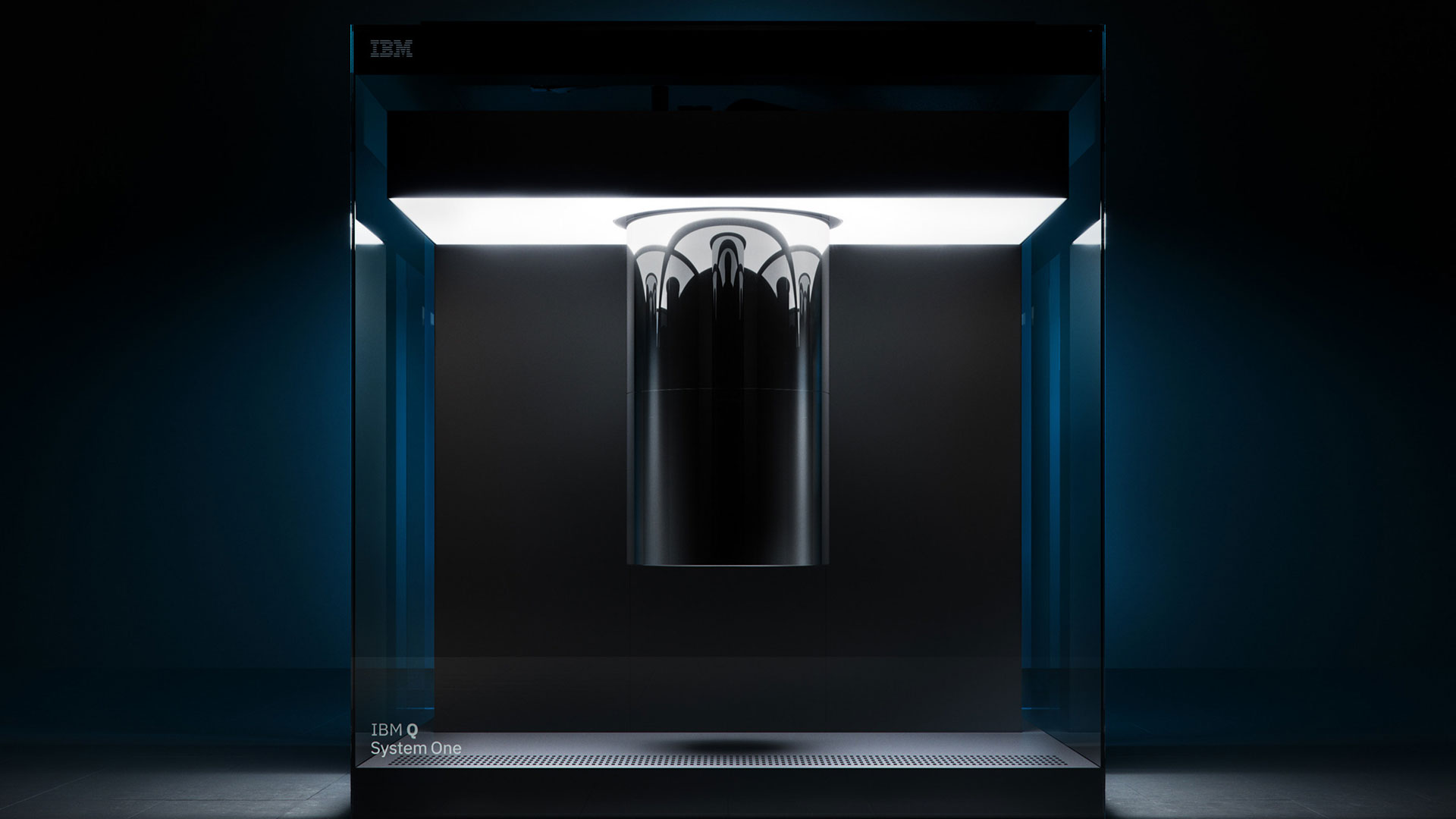
Less than 1% of the world's data is being collected and analysed, according to IBM CEO Ginny Rometty, who told attendees of the opening keynote at CES that so-called 'deep data' represents a huge opportunity.
Rometty took to the stage for CES 2019's opening keynote, showcasing the convergence of enterprise and consumer technology. After the Consumer Technology Association - the industry body which organises CES - announced that we were now entering the data age, Rometty's presentation backed that presumption up and built upon it.
IBM is no stranger to the importance of data, but Rometty was keen to stress just how important it is, indicating that data is set to become the most valuable resource in the world.
However, data is only valuable if you can extract actionable insight from it, and that's where IBM is playing hard, with massive investment and R&D behind AI and machine learning. IBM's Watson platform has been a focal point for the company for many years now, with cognitive computing underpinning many of the company's solutions and platforms.
According to Rometty, less than 1% of the data generated in the world is collected and analysed, with much of that representing what she referred to as 'deep data'; essentially data that hasn't been dug up, examined and mined for its value. But with the right tools, she said, we'll be able to make more use of more of the world's generated data, and consequently make better-informed decisions and predictions.
One area where more insightful and accurate predictions could have a major impact is weather forecasting, which may be why IBM acquired The Weather Company in 2016 - to act as a testbed for Watson.
Clearly, Watson has risen to the challenge, as Rometty announced that The Weather Company is becoming a truly global service, delivering detailed weather predictions every 3km across the globe on an hourly basis. On top of that, anyone using The Weather Company app on a phone with barometer functionality will have the option to share that data with the app, adding granular, localised data to the predictions.
Get the ITPro daily newsletter
Sign up today and you will receive a free copy of our Future Focus 2025 report - the leading guidance on AI, cybersecurity and other IT challenges as per 700+ senior executives
Rometty also brought Ed Bastian - CEO of Delta Airlines - out on stage to talk about how data, AI and accurate weather prediction can have a real-world impact. Anyone who flies regularly knows that bad weather causes turbulence, which can make a flight uncomfortable, to say the least. But Bastian pointed out that while turbulence can cause discomfort for passengers, it can cause injury to staff - unlike passengers, cabin crew aren't strapped into their seats when turbulence hits, they're busy looking after the passengers and making sure they're safe.
With more accurate weather predictions, pilots could avoid more bad weather and turbulence, or if it's not possible to avoid the bad weather, the cabin crew could be warned to ensure they're not at risk when the turbulence hits.
Bastian also talked about how AI could revolutionise the experience for passengers, but highlighted that any AI solution will only ever be as good as the data that supports it. Painting a picture where passengers can glide through check-in, security and boarding via advanced facial recognition, Bastian also floated the idea of digital assistants that would know everything about a passenger once their face had been recognised.
An assistant that instantly knows who you are, when you last flew, how often you fly and what kind of customer experience you've had on your previous flights, could be able to deal with customers far more effectively and efficiently. Essentially, Bastian sees the combination of deep data and AI as a way to deliver a better experience for his customers on every level.
The next big hitter that Rometty invited to the stage was Charles Redfield - executive vice president of food at Walmart - who talked about how data, and specifically Blockchain, was revolutionising Walmart's food supply chain.
Redfield and Rometty talked about the impacts of food recalls on a business and its customers - not only are their obvious financial implications, but bad food can cause serious health problems for consumers who inadvertently consume it. And then there's the huge issue of waste, where tonnes of food will be destroyed for fear of contamination.
One way to ensure that food is fresh and fit for consumption at sale is knowing its exact provenance, from the moment it was harvested, through packaging and distribution. How long ago was it harvested, how was it transported? What was the temperature in the transportation vehicles? What hubs did it go through? Having a clear picture from harvest to store shelf, gives a retailer a greater degree of trust and comfort.
Walmart decided to trace the entire journey of one batch of fruit and Redfield found that it took seven days to collate a full log of that journey. With that kind of time lag, any information businesses do receive will be arriving far too late to act upon; it's important data, but it can't trigger positive action.
This, Redfield said, is what prompted Walmart to work with IBM on a Blockchain solution that can log every step of a food supply journey. And with Blockchain's intrinsic security, Redfield claimed that it's now impossible for suppliers or logistics companies to hide any issues that may happen along the way; the entire supply chain journey is now completely transparent, he said, so Walmart can check every aspect from journey time, to distance travelled, to storage temperature, to moving versus stationary time and so on.
Using IBM's Blockchain solution, Walmart can now trace the entire journey of food far more quickly - while Redfield's initial supply chain trace took a full seven days, thanks to Blockchain that time has been reduced to 2.2 seconds.
This technology won't just benefit retailers, though, since that transparency can filter down to customers, too. If you've ever wondered where the ingredients for a product you've bought came from, you'd now be able to satisfy that curiosity. But most importantly, if consumers can see the origin and journey of their fresh produce, it will deliver the dual benefits of peace of mind and trust.
Tightening the focus on AI, Rometty invited Dario Gil - COO of IBM Research & vice president of AI and Quantum - onto the stage. Gil talked about narrow, broad and general AI. Narrow AI is where we are today, where we can train systems to do a single task extremely well. General AI is the holy grail that we're used to seeing in sci-fi, where a system can think, reason and make decisions just like a human would. Broad AI, as you'd imagine, sits somewhere between the two.
Gil said that IBM is making strides in the broad AI space, highlighting IBM Research's Project Debater as an example. Creating an AI system that can debate with a human opponent in real-time isn't easy, but IBM is confident in Project Debater. Given a topic, Project Debater will create a four minute speech and deliver it, the human opponent will then deliver a four minute rebuttal speech, which Project Debater needs to capture and analysed in real-time, before composing and delivering its four minute response.
Project Debater is still a long way from a fully aware general AI, but it's an important step towards that ideal. It also highlights that AI is becoming faster and more flexible, both of which will open up new uses and solutions.
And while on the subject of the future of computing, Rometty and Gil wrapped up with an update on quantum computing, inviting Dr. Vijay Swarup - vice president of R&D at ExxonMobil - to talk about the benefits that Quantum Computing could deliver. Swarup said that quantum computing can help us understand energy at a fundamental level, which in turn can help improve efficiency, reduce emissions, and work towards initiatives like carbon capture that could help mitigate climate change.
IBM said it's committed to developing quantum computing as a platform for scientific research and commercial applications, and it unveiled a new, fully integrated quantum compute system, the IBM Q System One. However, we're still a long way from understanding how to fully utilise a quantum compute platform, so this will be as much an opportunity for researchers to learn how to better leverage a quantum platform as it is about using the platform for specific tasks.
Rometty's keynote once again highlighted how important data has become, and that analysing and acting upon that data can deliver tangible results for businesses that can ultimately result in benefits for customers. Throw the ever-evolving world of AI into the mix, and the potentially huge scientific, commercial and societal impact that quantum computing could have in the future, and it's clear that enterprise and consumer technologies will continue to converge and rely even more on each other.
-
 Cleo attack victim list grows as Hertz confirms customer data stolen
Cleo attack victim list grows as Hertz confirms customer data stolenNews Hertz has confirmed it suffered a data breach as a result of the Cleo zero-day vulnerability in late 2024, with the car rental giant warning that customer data was stolen.
By Ross Kelly
-
 Lateral moves in tech: Why leaders should support employee mobility
Lateral moves in tech: Why leaders should support employee mobilityIn-depth Encouraging staff to switch roles can have long-term benefits for skills in the tech sector
By Keri Allan
-
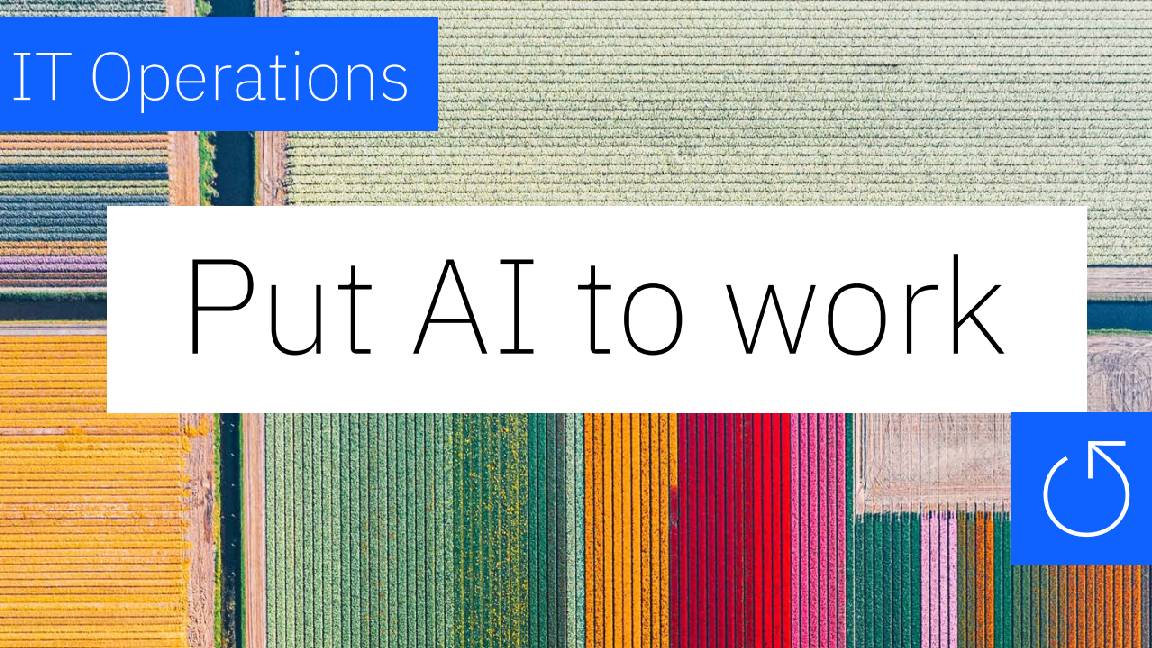 Put AI to work for IT operations
Put AI to work for IT operationswhitepaper Reduce the cost and complexity of managing hybrid applications
By ITPro
-
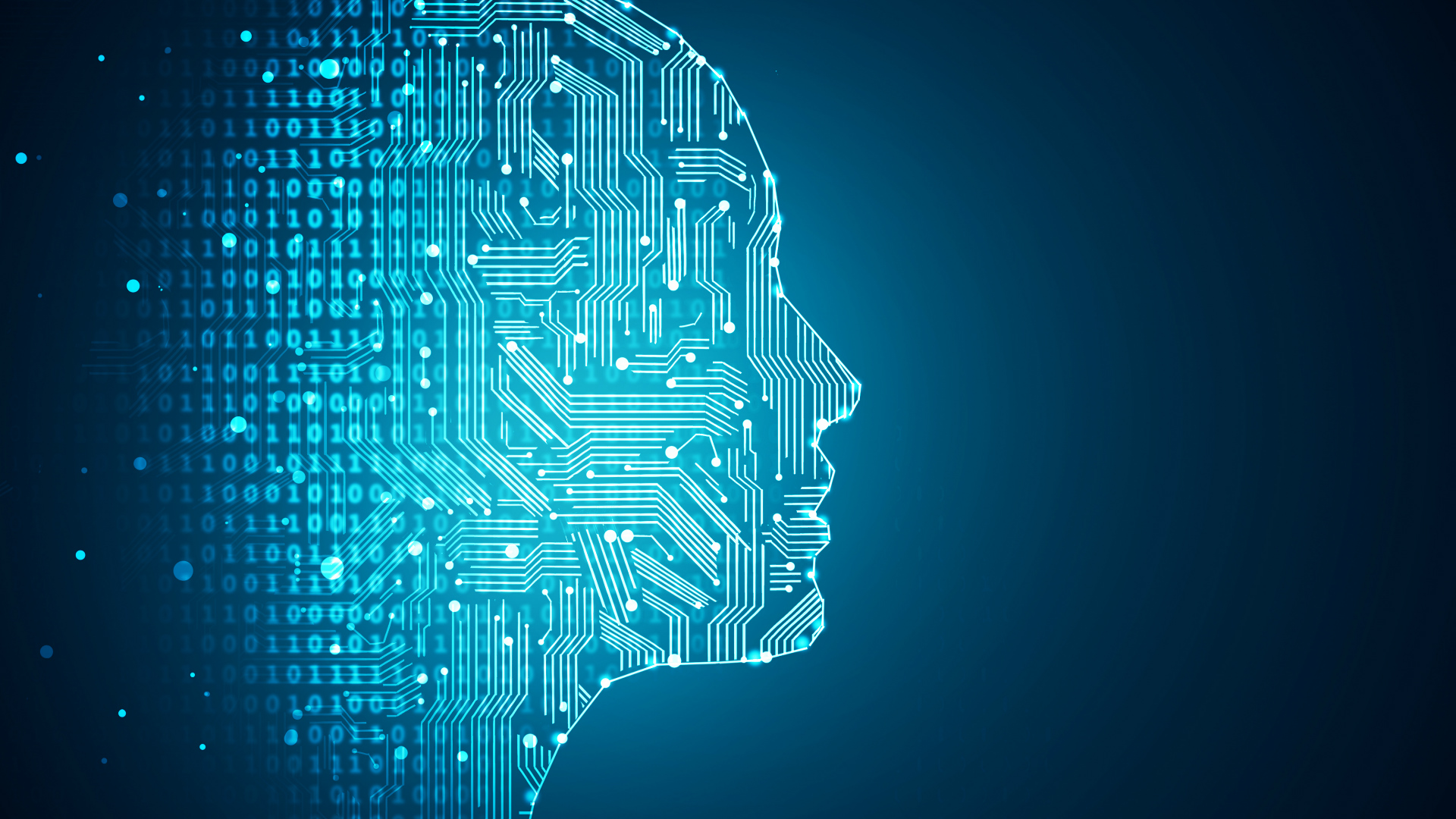 AI in the retail industry is spreading beyond the IT department
AI in the retail industry is spreading beyond the IT departmentNews AI has become a strategic imperative for retailers, delivering marked productivity gains
By Emma Woollacott
-
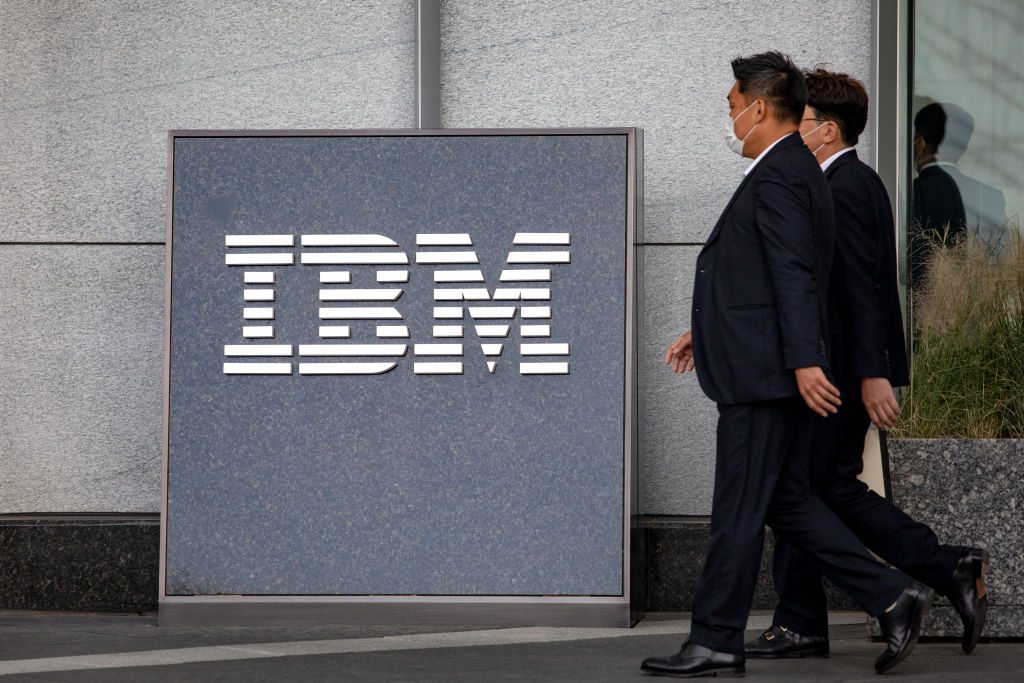 Maximizing contact center operations with generative AI assistants backed by responsible AI principles
Maximizing contact center operations with generative AI assistants backed by responsible AI principleswhitepaper Reduce the cost and complexity of managing hybrid applications
By ITPro
-
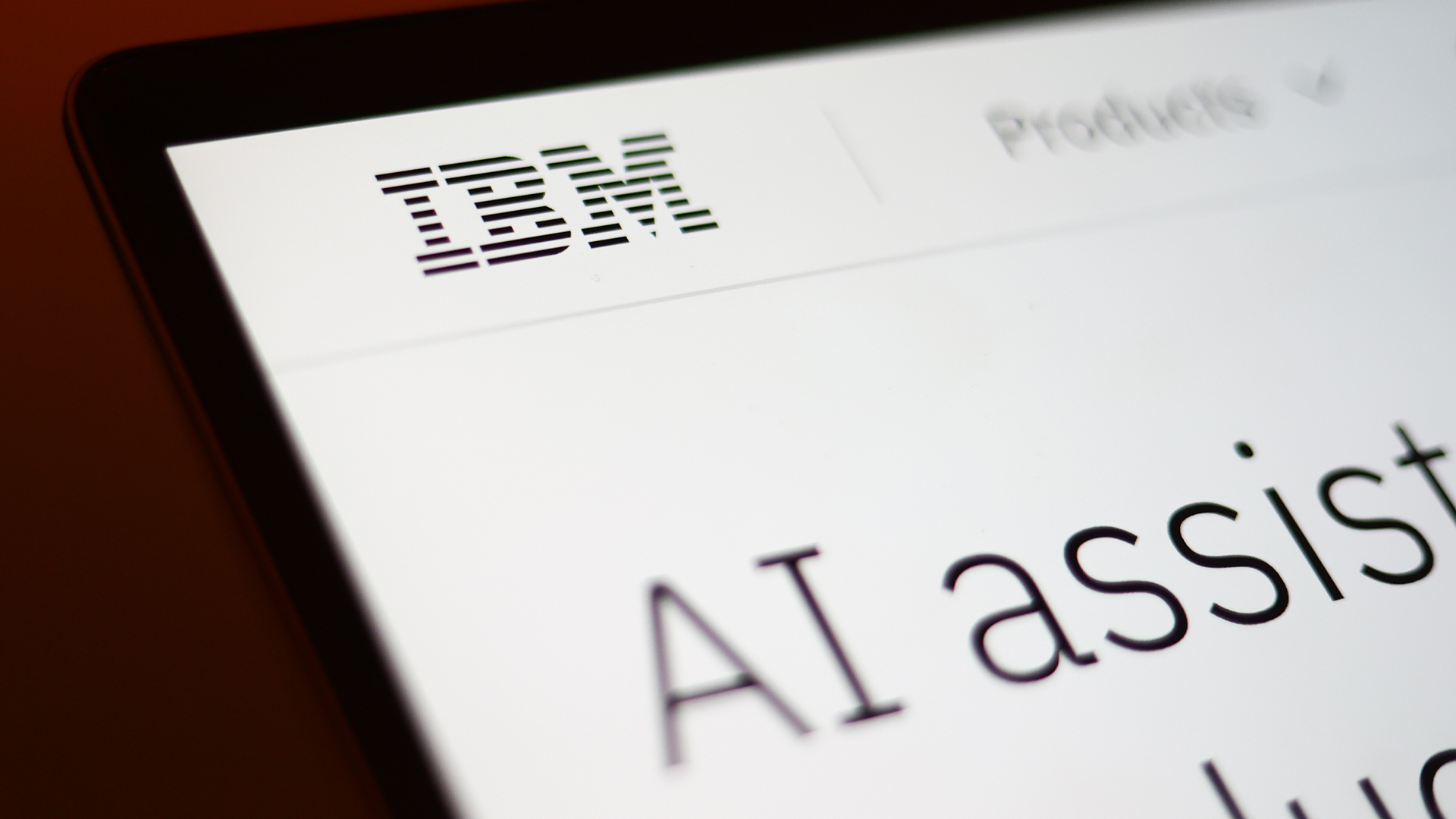 IBM just launched powerful new open source AI models – here’s what you need to know
IBM just launched powerful new open source AI models – here’s what you need to knowNews Available under the Apache 2.0 license, IBM's Granite 3.0 models are trained on enterprise data and can out-perform the competition
By Emma Woollacott
-
 Achieving business outcomes with generative AI
Achieving business outcomes with generative AIWebinar Take your hybrid cloud journey to the next level with generative AI
By ITPro
-
 Wimbledon’s new Catch Me Up AI feature promises to keep fans up to date at the tournament – after it irons out some of the wrinkles
Wimbledon’s new Catch Me Up AI feature promises to keep fans up to date at the tournament – after it irons out some of the wrinklesNews The latest feature to come out of IBM’s partnership with Wimbledon will keep fans engaged from the early stages right through to the final with dynamic player insights
By Solomon Klappholz
-
 AI demands new ways of data management
AI demands new ways of data managementwhitepaper The data leader’s guide for how to leverage the right databases for applications, analytics and generative AI
By ITPro
-
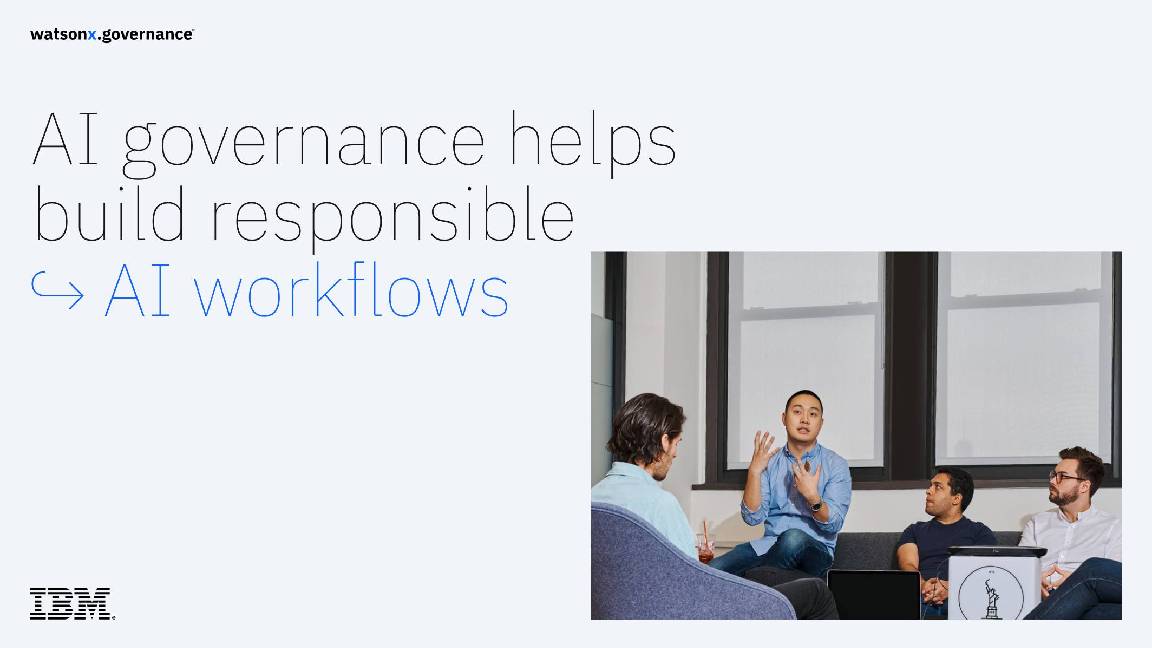 AI governance for responsible transparent and explainable AI workflows
AI governance for responsible transparent and explainable AI workflowswhitepaper Build greater trust in your AI
By ITPro